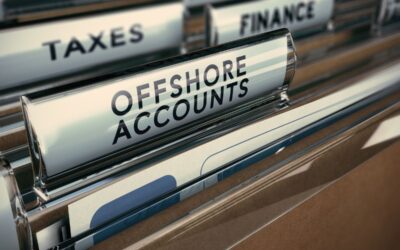Reducing risk is rule number one for any savvy investor. But how can you insulate yourself from those naturally occurring stresses that are part of life in any market? Even if you’ve truly diversified your range of assets and financial instruments you’re still fundamentally exposed to natural risks in that market. And what about those risks that nobody can even anticipate? Expect the unexpected! Force majeure, natural disasters – we’ve had more than our fair share of those recently and they’ve caused investors stress big time. But is there any way to help chill out?
The answer is to think globally. You may have all, or most, of your investments tied up in your local market and that’s natural, in the beginning at least, it’s a market you know and the unknown is always scary. But it’s unsustainable on a risk basis. If you can take that brave step of broadening your knowledge and range of advisers to consider overseas markets, then you can spread and reduce your risk exposure – and your stress level.
Start Smart Investing
Smart investors will always look to diversify their overseas investments by putting their money into a variety of assets, such as stocks, bonds, precious metals, and real estate. Diversification is the key to reducing risk and maximizing returns in your investment portfolio. While investing in your local market can offer stability and familiarity, it’s essential to expand your portfolio and consider overseas investments. Investing overseas can help you take advantage of opportunities in emerging markets, access new industries, and currencies, and diversify your portfolio against geopolitical risks.
It is important to note, that investing all your money in stocks or bonds based in your home country is not true diversification. For example, if you live in the US and have invested in US-based stocks or bonds, as well as local real estate, you will be considered to have invested in one market. The reason you need to diversify is that if the US economy goes through another financial crisis or recession, all your local investments will be negatively affected, regardless of the sector you have invested in.
However, investing overseas can be complex, and it’s essential to do your research and plan your strategy carefully. In this article, we’ll provide some practical tips on how to diversify your overseas investments, including the benefits of overseas investments, the risks involved, and strategies to minimize them. Therefore, it is always a good idea to genuinely diversify your wealth by including investments outside your home country in your portfolio. So lets consider some of the benefits in investing part of your portfolio abroad.
Diversification
By investing in foreign markets, asset classes, and real estate in other countries, you can spread your investment risk by the number of countries, currencies, and types of investment you chose to invest in. It may require extra work but it provides peace of mind, stable returns, and long-term value to your portfolio.
Access to Emerging Markets
Investing offshore also offers the benefit of being able to take advantage of emerging markets and opportunities. It requires you to be flexible and efficient on your banking setup to ensure you do not miss opportunities though. Investing in emerging markets can provide high growth potential as these markets often have a younger and growing population, access to natural resources, and a thriving middle class. Emerging markets also tend to have lower valuations compared to developed markets, providing attractive investment opportunities.
Currency Diversification
Investing in foreign currency is a great way to avoid putting your eggs in the same basket. If you have already opened an offshore bank account for you or your business, your bank is probably already offering several services that would answer this aspect. Otherwise, you may book a free consultation with one of your representatives to look at the options available to you.
Portfolio Growth
Foreign markets and countries provide you with a wider range of opportunities. Investing overseas provide you access to potential high returns along with the different type of investments that may not be available and/or easy to access in your home country. This is because different regions and countries have different economic cycles and market conditions, which can provide opportunities for higher returns.
Overall, investing overseas can provide a range of benefits, but it’s important to do your research and understand the risks involved. Working with a trusted advisor can help you create a diversified investment portfolio that meets your financial goals and risk tolerance.

Strategies to diversify your offshore investments
First of all, if you do not have an offshore bank account yet (which will definitely help shall you wish to invest abroad), you may have a quick look at our other article providing with you 10 reasons to open an offshore bank account.
Invest in Real Estate
When buying property abroad, you should be aware that it is essential to undertake full due diligence and understand the property laws of the country in which you are investing. It is also essential to research and deals with reputable companies in the local jurisdiction to ensure that you get what you think you are buying. These points are important because you may assume that buying a property in a foreign jurisdiction, means that you will receive the official title to that property. However, in some countries this is not always the case and therefore working with people you can trust and who will help you through the process, can prevent you from buying a property project you will later regret.
Invest in Index Funds or ETFs
One of the simplest ways to invest offshore is to invest in index funds or exchange-traded funds (ETFs). These funds allow you to invest in a broad range of international stocks and bonds, providing diversification and reducing risk. By investing in a passive fund that tracks a market index, you can benefit from the performance of the overall market, without having to choose individual stocks or bonds.
Consider investing in Cryptocurrency
Even though cryptocurrency may have bad publicity from the general public or even from several institutions and governments, it is still a good alternative to diversify your portfolio by using an exchange located outside your country of residence. However, please ensure that your banking partners are already crypto-friendly before proceeding to avoid having your bank account frozen (or worth closed). You may have a look at our article related to Cryptocurrency and banking services shall you need further information.
Diversify Across Asset Classes
Another way to diversify your offshore investments is to invest in different asset classes, such as stocks, bonds, and real estate. By investing in different asset classes, you can spread your risk across different industries and markets. For example, investing in real estate in a foreign country can provide diversification and potentially higher returns compared to investing solely in the stock market.
Work with your existing or find experienced banking partners
Another successful consideration is to work with an experienced international bank with many years of history in the international banking industry when you need to have a better overview of your existing options when it comes to offshore investment. Even though, most traditional banks may not offer you the best alternatives it is still worth checking. However, you may already start looking for trusted partners abroad.
Talk to your advisers
Most financial advisers already work with a range of business providers and banking partners to support their client’s offshore strategies. They will also be able to provide you assistance to ensure your strategy and/or investments planned are tax compliant within your country of residence. A financial advisor can help you determine your risk tolerance and financial goals and create a customized investment strategy that meets your needs. Additionally, they can help you navigate the complexities of investing offshore, such as currency risks and compliance with foreign regulations.
Conclusion
In conclusion, diversifying your investment portfolio with offshore investments can be a smart move to reduce your risk and maximize your returns. However, investing offshore can be complex and challenging, requiring careful research and planning. By implementing the strategies outlined in this article, such as investing in index funds or ETFs, considering emerging markets, diversifying across asset classes, and working with a financial advisor, you can create a diversified offshore investment portfolio that meets your financial goals and risk tolerance. Remember to do your due diligence, consider the risks and opportunities, and seek professional guidance when needed. With the right approach, offshore investments can provide a valuable addition to your investment portfolio.
To start with, you can start your journey by opening your offshore bank account to ensure your funds are ready to be invested as soon as a new opportunity arises.
Shall you wish to discover your options available based on your current situation, do not hesitate to book a free consultation with our team now.
Disclaimer
Widelia and its affiliates do not provide tax, investment, legal or accounting advice. Material on this page has been prepared for informational purposes only, and is not intended to provide, and should not be relied on for, tax, investment, legal or accounting advice. You should consult your own tax, legal, and accounting advisors before engaging in any transaction. Please consult https://widelia.com/disclaimer/ for more information.









